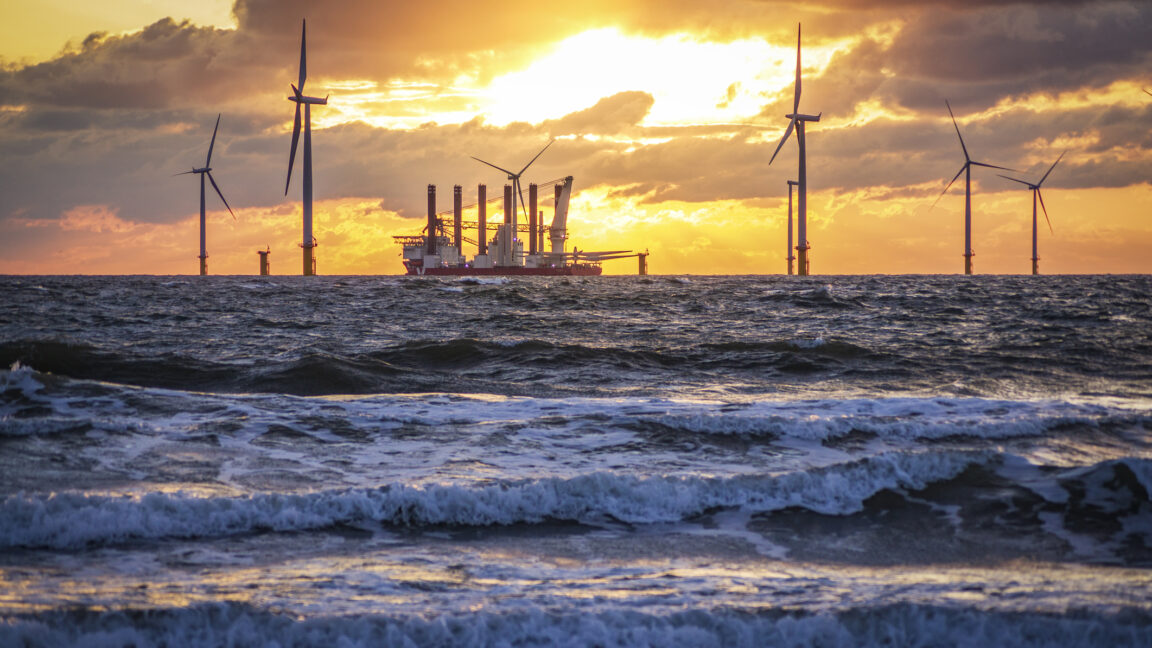US Interior secretary orders offshore wind project shut down
Please hold
US Interior secretary orders offshore wind project shut down
Stoppage comes the same week a government report finds few problems with permitting.
John Timmer
–
Apr 17, 2025 4:25 pm
|
2
Credit:
Chris McLoughlin
Credit:
Chris McLoughlin
Story text
Size
Small
Standard
Large
Width
*
Standard
Wide
Links
Standard
Orange
* Subscribers only
Learn more
On Thursday, Norwegian company Equinor announced that it was suspending the construction of a planned 800 MW-capacity offshore wind farm currently being built in the waters off New York. The reason? An order from US Secretary of the Interior Doug Burgum, who alleged that the project was rushed through review.
The move comes as the US's nascent offshore wind industry is facing uncertainty, with all future leases placed on hold by an executive order issued on the day of Trump's inauguration. The hold was ostensibly put in place to allow time to review the permitting process. But Burgum's move comes the same week a report from the Government Accountability Office, done in response to the executive order, found only minor issues with the existing permitting process.
On hold
The Equnior project, termed Empire Wind, is a key part of New York's plans to meet its climate goals. Combined with a second phase that's currently in planning, Empire Wind would have a rated capacity of two Gigawatts, or over 20 percent of the state's planned offshore wind capacity. The initial construction, combined with the development of shore facilities, already has an estimated value of $2.5 billion, Equinor estimates, and is currently employing roughly 1,500 people. Construction was expected to be complete in 2027, although energy production from a subset of the 54 planned 15 MW turbines could have begun before then.
Burgum's order was only made public via a post on X, which says that the hold will last "until further review of information that suggests the Biden administration rushed through its approval without sufficient analysis." There is no indication of what that information is or how long the review is expected to last.
It's notable that this hold comes despite Trump's executive order explicitly stating, "Nothing in this withdrawal [of future leasing] affects rights under existing leases in the withdrawn areas."
GAO undercuts the message
The order alleged there were "various alleged legal deficiencies underlying the Federal Government’s leasing and permitting of onshore and offshore wind projects, the consequences of which may lead to grave harm." In response to those allegations, the Government Accountability Office began an evaluation of the Department of the Interior's activities in overseeing offshore wind development. The results of that were made public on Monday.
And the report only found minor issues. Its primary recommendations are that Interior improve its consultations with leaders of tribal communities that may be impacted by wind development and boost "incorporation of Indigenous knowledge." The GAO also thinks that Interior should improve its methods of getting input from the fishing industry. The report also acknowledges that there are uncertainties about everything from invasive species to the turbines' effect on navigational radar but says these will vary based on a wind farm's site, size, and other features, and we'll only have a clearer picture once we have built more of them.
Notably, it says that wind farm development has had no effect on the local whale population, a popular Republican criticism of offshore wind.
Trump's animosity toward wind power has a long history, so it's unlikely that this largely positive report will do much to get the hold on leasing lifted. In reality, however, the long-term uncertainty about offshore wind in the US will probably block new developments until the end of Trump's time in office. Offshore wind companies have budgeted based on tax incentives in the Inflation Reduction Act, and the administration has suggested they may revoke those in future budgets. And the move by Burgum means that, even if a company clears all the leasing and improvement hurdles, the government may shut down a project for seemingly arbitrary reasons.
John Timmer
Senior Science Editor
John Timmer
Senior Science Editor
John is Ars Technica's science editor. He has a Bachelor of Arts in Biochemistry from Columbia University, and a Ph.D. in Molecular and Cell Biology from the University of California, Berkeley. When physically separated from his keyboard, he tends to seek out a bicycle, or a scenic location for communing with his hiking boots.
2 Comments


